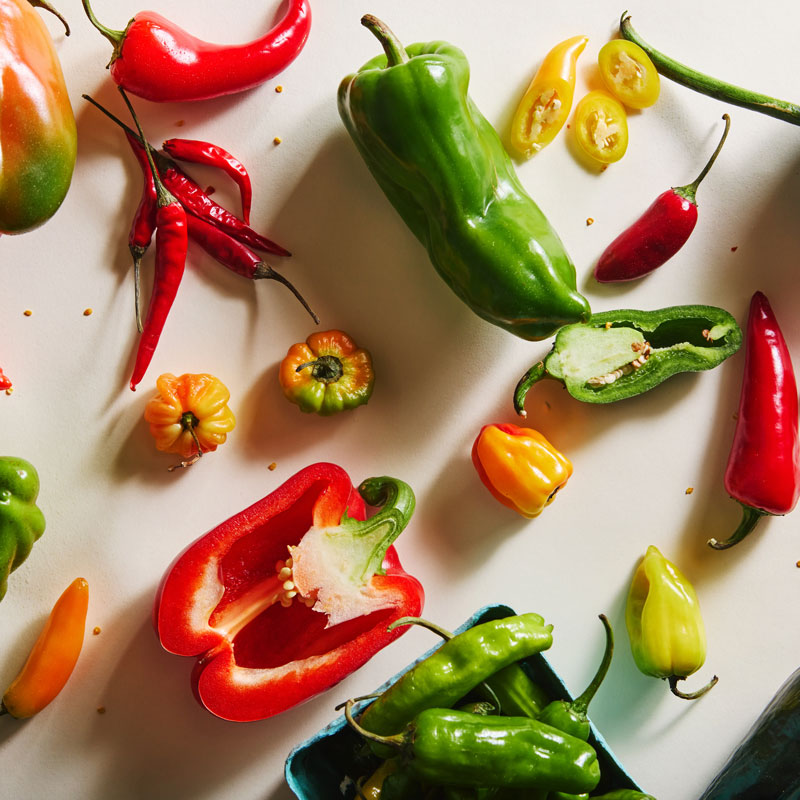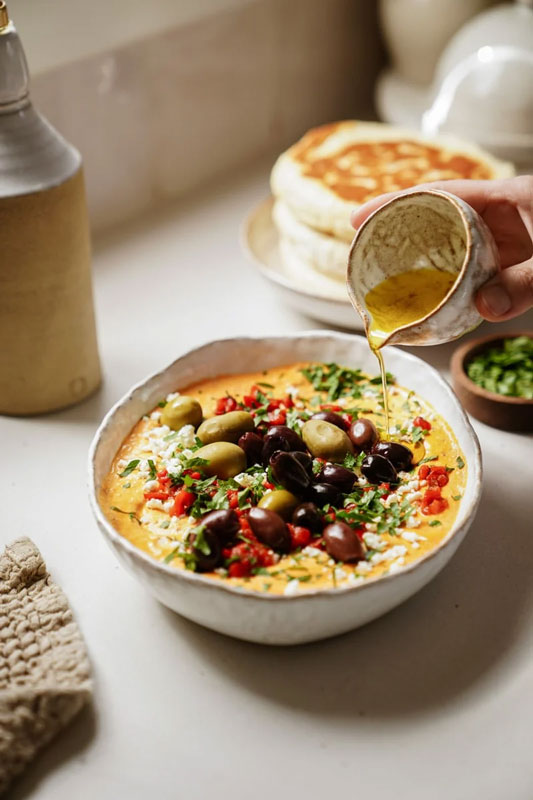
Peppers, whether sweet or spicy, are a cornerstone of global culinary traditions. In Greece, their vibrant flavors, health benefits, and versatility have deeply influenced the country’s cuisine. While peppers may not be native to Greece, their integration into Greek cooking practices is a fascinating story of trade, adaptation, and innovation. This article delves into the rich history of peppers in Greek cuisine, exploring their introduction, cultural significance, and enduring popularity.
Peppers (Capsicum spp.) are native to the Americas and were introduced to Europe following Christopher Columbus’s voyages in the late 15th century. Initially regarded as exotic novelties, peppers quickly gained popularity in Europe for their versatility and unique flavors. By the 16th century, they had made their way to the Mediterranean, where their adoption was influenced by trade routes connecting Europe, the Ottoman Empire, and North Africa.
The Introduction of Peppers to Greek Cooking
Greece, strategically positioned at the crossroads of Europe and Asia, became a hub for the exchange of goods, ideas, and culinary practices. Peppers were brought to Greek shores through Venetian and Ottoman traders. Their cultivation flourished in Greece’s warm Mediterranean climate, and they were soon integrated into the agricultural landscape.
Peppers in Traditional Greek Cooking
Greek cuisine is celebrated for its emphasis on fresh, seasonal ingredients and bold flavors. Peppers, with their vibrant colors and diverse taste profiles, fit seamlessly into this culinary ethos. Over time, they became an essential ingredient in both everyday meals and festive dishes.
Sweet Peppers in Greek Cooking
Sweet peppers, or piperies glykes, are often stuffed with rice, herbs, and sometimes meat in the beloved dish gemista. This dish highlights the Mediterranean approach of letting vegetables shine as both the vessel and star of the meal. Sweet peppers are also roasted and preserved, creating a smoky delicacy that is enjoyed as part of meze spreads alongside olives, feta cheese, and dips like tzatziki.
Spicy Peppers: A Taste for Heat
While Greece is not typically associated with spicy food, certain regions, particularly in northern Greece, have a strong tradition of using spicy peppers. The introduction of chili peppers (Capsicum annuum) to Greek cuisine brought a new dimension of heat. Dried and ground spicy peppers are used in spice blends like boukovo (red chili flakes), which are sprinkled on grilled meats, vegetables, and cheese pies for added zest.
Peppers in Preserves and Sauces
In rural Greece, preserving food has always been a practical necessity. Peppers are often pickled or incorporated into spreads like piperia Florinis, a roasted red pepper dip originating from the Florina region. This vibrant, sweet, and smoky dip is a testament to the creativity of Greek home cooks, who have long used peppers to create deeply flavorful dishes from simple ingredients.
The Cultural Significance of Peppers in Greece
Beyond their culinary uses, peppers hold cultural significance in Greece. They are a symbol of abundance and are often featured in regional festivals celebrating the harvest season. In the northern regions, particularly Florina, annual pepper festivals showcase the importance of this vegetable in local identity.
Additionally, peppers have historical ties to Greece’s rural traditions. Farmers have cultivated and passed down heirloom varieties, such as the Florina pepper, known for its elongated shape and deep red color. These peppers are prized not only for their taste but also for their representation of Greece’s agricultural heritage.
Modern Greek Cooking and the Continued Evolution of Peppers
In contemporary Greek cuisine, peppers remain a versatile ingredient. Chefs and home cooks alike experiment with both traditional and modern recipes, blending global influences with local traditions. For example, here are 3 Greek pepper-based dishes:
- Stuffed Peppers with Quinoa: A modern twist on gemista, this dish incorporates quinoa for a lighter, protein-packed version.
- Spicy Pepper Sauces: Inspired by global cuisines, spicy pepper sauces have become popular in Greek restaurants, offering a bolder flavor profile.
- Grilled Pepper Salads: Combining grilled peppers with Greek olive oil, fresh herbs, and feta cheese creates a simple yet sophisticated dish.
Moreover, the health benefits of peppers—rich in vitamins A and C, antioxidants, and capsaicin—align with the principles of the Mediterranean diet, making them a popular choice for health-conscious eaters.

Peppers and Greek Gastronomy in the Global Context
Greek cuisine, with its emphasis on wholesome, flavorful dishes, has gained international recognition. Peppers, as a key ingredient, play a pivotal role in showcasing the vibrancy of Greek gastronomy. Whether it’s a smoky roasted pepper dip served in a taverna or a plate of spicy boukovo-seasoned lamb prepared in a high-end restaurant, peppers connect Greek culinary traditions to a global audience.
Tourists visiting Greece often take home jars of preserved peppers or spice blends, bringing a piece of Greece’s pepper-filled legacy back with them. This global appreciation highlights how an ingredient introduced centuries ago has become an integral part of the Greek culinary identity.